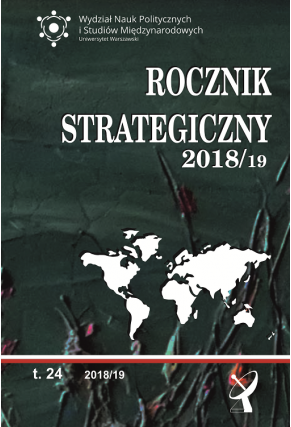Europa Wschodnia i Kaukaz Południowy…:
dziesięciolecie Partnerstwa Wschodniego
Eastern Europe and South Caucasus –
ten years of Eastern Partnership
Author(s): Andrzej SzeptyckiSubject(s): Politics, Social Sciences, Law, Constitution, Jurisprudence, Geography, Regional studies, Geopolitics
Published by: Wydawnictwo Naukowe Scholar Sp. z o.o.
Keywords: conflict in Abkhazia; conflict in Donbass; conflict in Nagorno-Karabakh; conflict in Transnistria; conflict in South Ossetia; Crimea after annexation; Eastern Partnership
Summary/Abstract: The article aims to analyze the region of Eastern Europe and South Caucasusfrom the perspective of the EU Eastern Partnership programme. Ten years afterits initiation, the region remains unstable both politically and militarily. It is stillstruggling with post-Soviet heritage, such as corruption and authoritarian tendencies.While some countries (Armenia) try to counter these challenges, in others (Moldova)there was a significant deterioration of democratic standards. Such a situationseems to indicate the weakness of the EU’s policy mechanisms towards its Easternneighbourhood.According to the EaP assumptions, the cooperation with the countries of theregion is conducted on the case by case basis. This results in the separation of theEastern neighbours of the EU into two subgroups: the first one is made up of Ukraine,Moldova, and Georgia, which in 2014–2017 concluded association agreements withthe EU, providing for the creation of Deep and Comprehensive Free Trade Areas,and were offered a visa-free regime; the second one gathers Belarus, Armenia, andAzerbaijan, with which cooperation is more limited.Russia’s policy remains a key challenge both for the countries of the region and theEU. The Russian Federation is striving both to increase its influence in the countriesof Eastern Europe and South Caucasus, and to limit their cooperation with the EU.An important instrument, though not the only one, of the expansive Russian policyin the region are the frozen conflicts affecting Ukraine, Moldova, Georgia, Armenia,and Azerbaijan. In the case of Belarus, progressive integration of this country withRussia should not be excluded.
Journal: Rocznik Strategiczny
- Issue Year: 2019
- Issue No: 24
- Page Range: 252-266
- Page Count: 15
- Language: Polish

